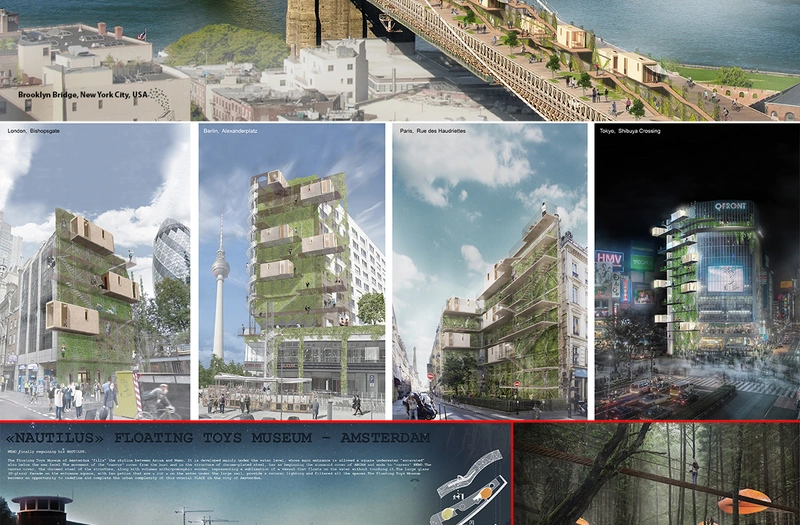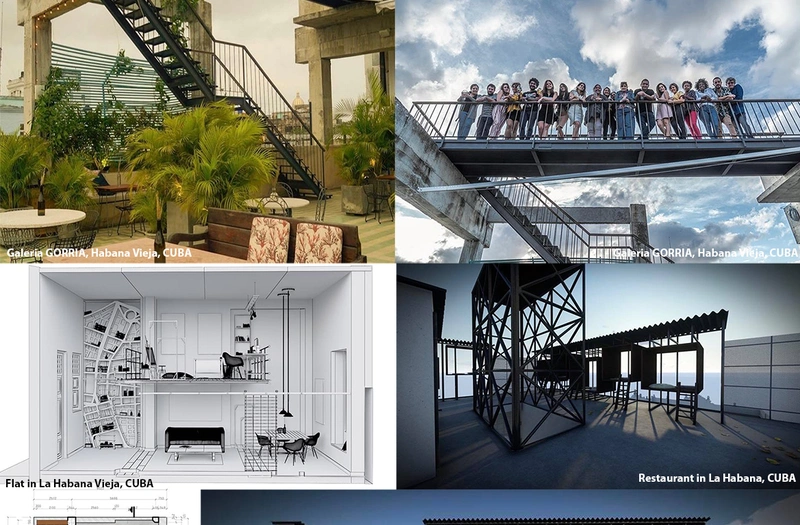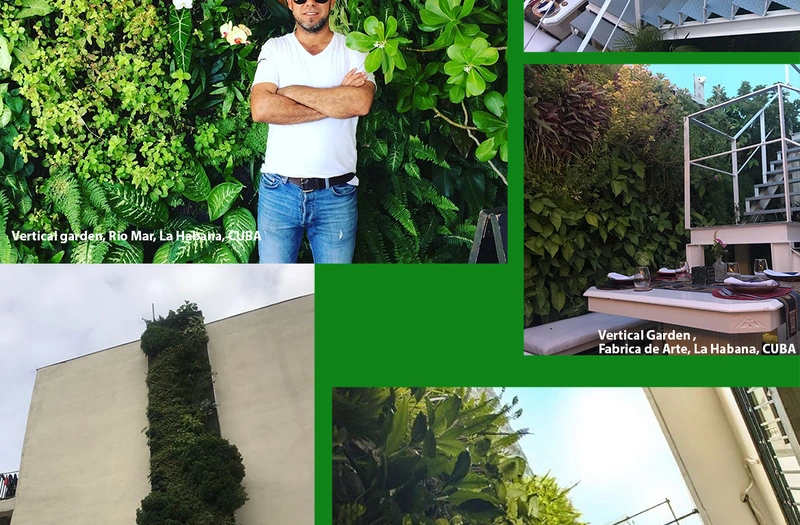HabitLib’ is a response to the constant need for urban housing. The project breaks with the pretended superiority of permanent architecture to suggest new densification scenarios and develop alternative housing modalities. HabitLib’ realizes the dream of a tree house or a house with a garden in the city within a place that reconciles the legitimate desire for closeness to nature with the social and metropolitan demands that no one wants to give up.
HabitLib’ modules can be quickly assembled, disassembled and reassembled several times before obsolescence. Their lightness (687 kg), durability and eco-efficiency are assured thanks to the use of biocomposite materials that combine natural fibers with resins derived from agricultural waste. Its functional and aesthetic characteristics meet all eco-compatibility standards in terms of lightness, flexibility, sustainable development, portability, transformability, adaptability and recyclability. Each housing unit is fully furnished and with services accessible to all. The ‘HabitLib’ system is a permanent vertical garden, a vision of the future for a mobile city. We assume that the city, to be smart, must be flexible, accessible but above all temporary. The smart city we envision consists of a series of plugs, artifacts, that dress the existing city according to a layering principle.
In our opinion, Smart does not necessarily mean linked to new technologies. By “Smart” we mean the synthesis between a near past and an imminent future. In this vision, when the imminent future has become the near past, the aforementioned flexibility will have achieved its intrinsic meaning. This objective, studied on a global scale, cannot be, in our opinion, the ultimate goal of Urban Planning as we have known and applied it in the last century. The temporality of urban interventions will be the guiding principle of this new programmatic strategy that we propose.
In La Havana, we are faced with three major urban and housing problems:
the lack of green spaces, the collapse of buildings, the shortage of housing.
in addition, the project's idea of development is to occupy new building spaces (densification), which are the residual public spaces that are not used or are left to their own devices.
So as in other cities where this strategy has been applied , also in La Habana this logic could serve to create at first vertical green spaces (vertical garden) that would be subsequently occupied by Habitlib housing units ranging from the studio typology to the individual vertical house typology, passing by collective housing condominiums.
Habitlib' in La Habana has evolved into housing units.
Although theoretically, given the modularity of the system, we can create with any type of housing unit. the project is in this way evolutionary and allows young couples (example) to expand their home in the various stages of their lives.
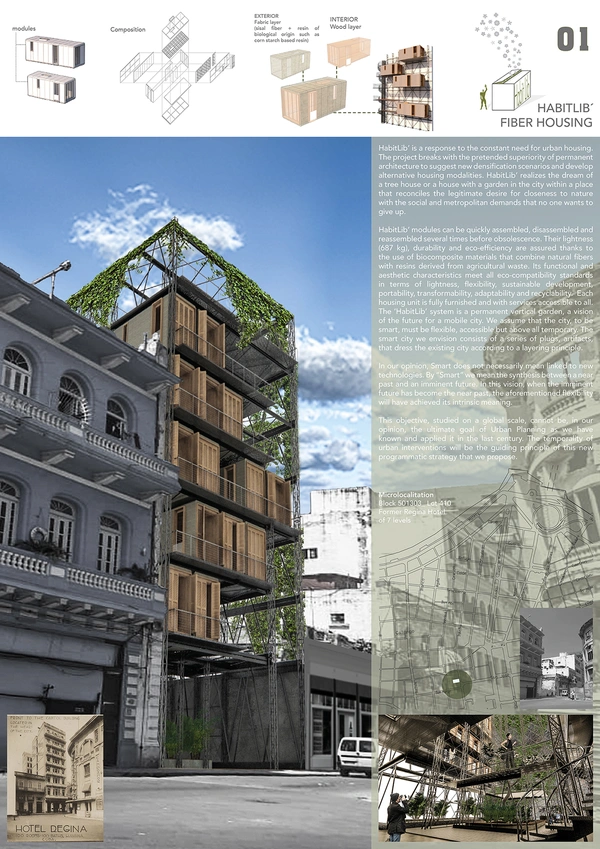
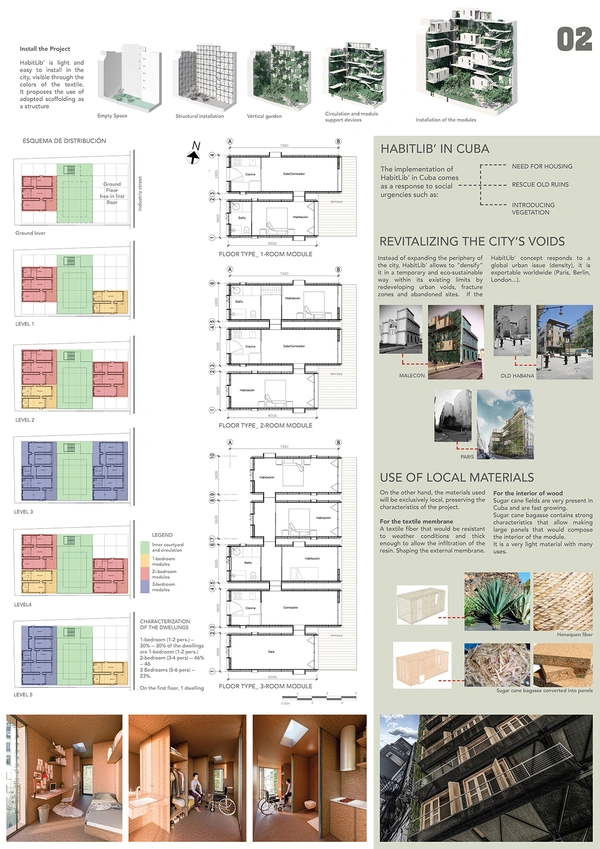
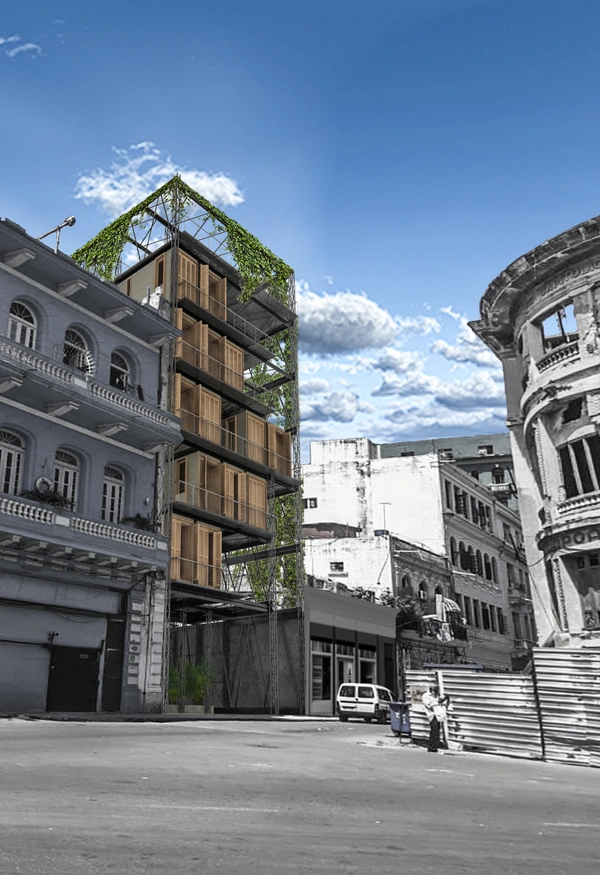
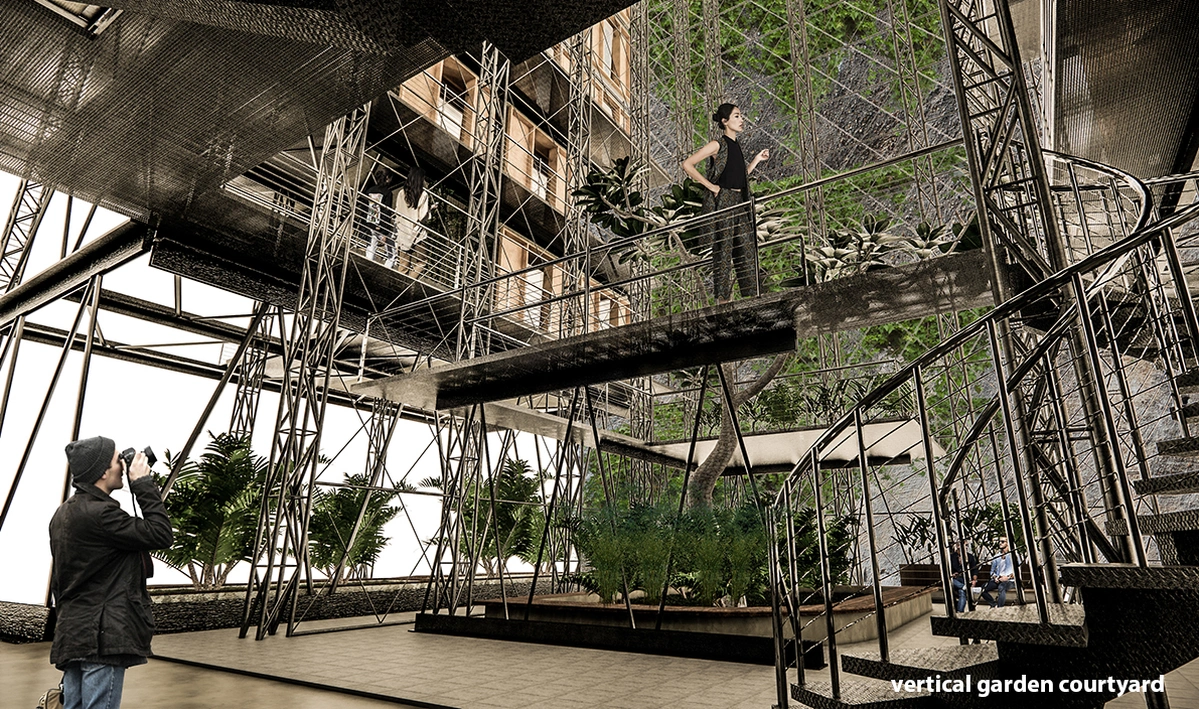
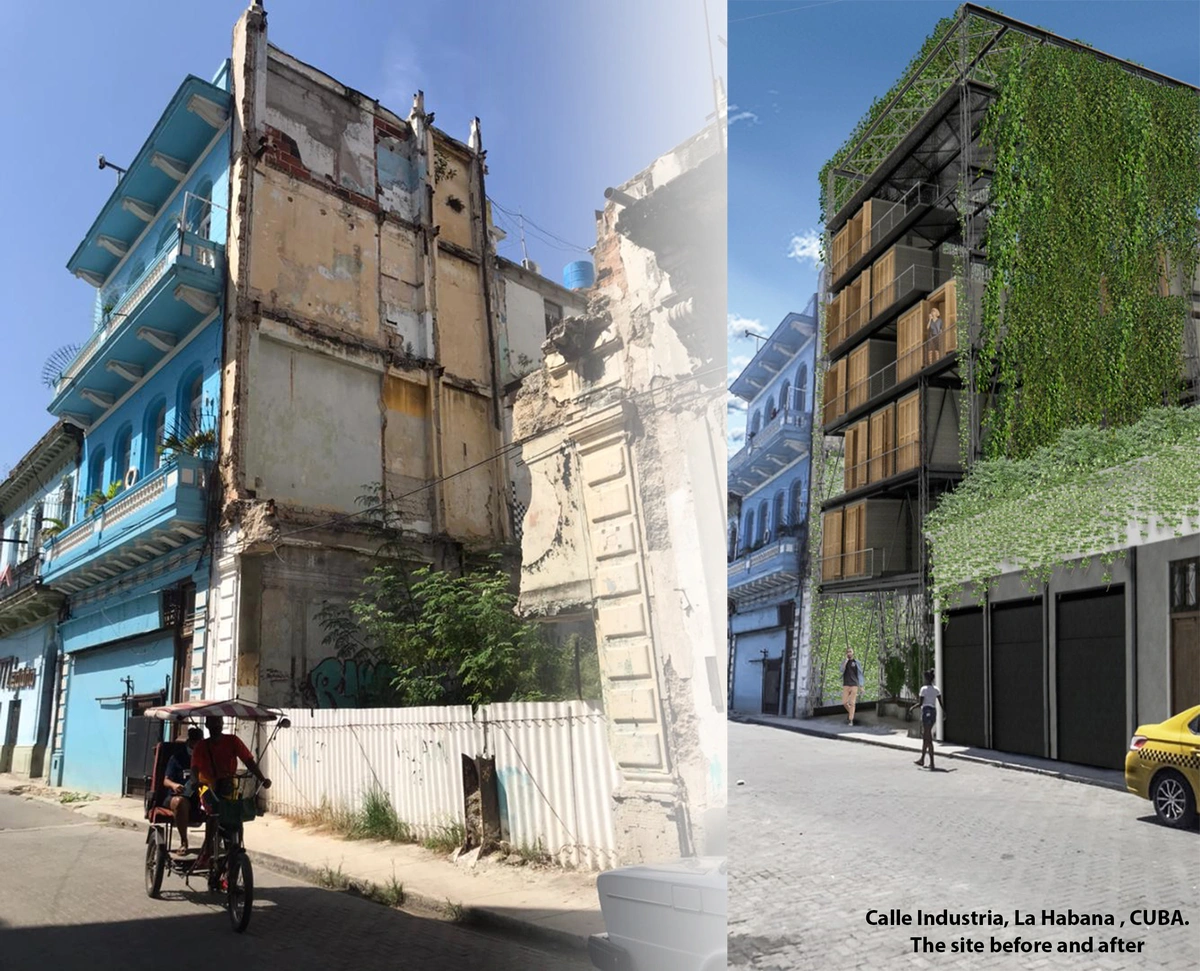
A magical joint adventure between former students from different universities who 20 years later met again and started working together in Havana for a different idea of the metropolis and the way to live it.
We met in 1999 in Paris during our studies. Several students from Havana and Nicola Casini, an Erasmus student from Florence who was studying in Paris.
During a conference in Havana organized by GECA (Grupo de Estudios Cubanos de Arquitectura) in March 2020, we decided to continue working together on the future of the city of Havana, imagining a city without concrete. Under the name of Industria Team, three groups of architects come together: Nicola Casini from Paris, UnomásVerde and hrg_arquitectura from Havana.
